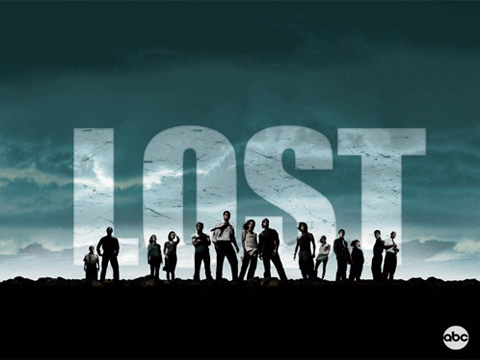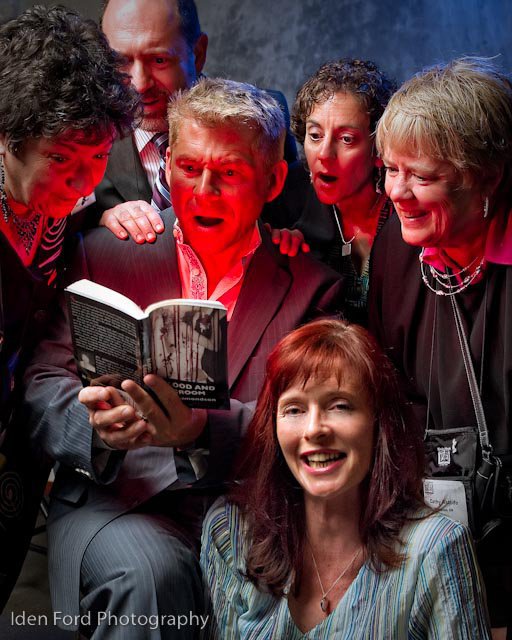Monday, June 7: The Scribbler
MY LIST O’ LEXICONS
by James Lincoln Warren

Some people shoot heroin, some play the ponies, some drink caffeinated beverages, and others rent DVDs. Me, I’m a dictionary junkie. I don’t know how many dictionaries I own. I honestly don’t. But for a writer, having dictionaries hardly qualifies as a vice. Of the many I own, I can think of only a couple I don’t routinely consult.
Along with my Bible, The Oxford English Dictionary, easily the greatest work of scholarship in all of history, here are some within easy reach on my bookshelves:
- Johnson’s A Dictionary of the English Language (a now out-of-print CD-ROM I keep by my computer from Cambridge University Press, containing facsimile and transcribed versions of the 1st (1753) and 4th (1773) editions)
- Partridge’s A Dictionary of Slang and Unconventional English (mostly British and Commonwealth, some American, slang)
- Wood’s The Complete Rhyming Dictionary (revised by Bogus—I kid you not)
- Hornblower and Spawforth’s The Oxford Classical Dictionary (more of a single volume encyclopædia on Greek and Roman history and culture than a quick-reference dictionary)
- Smith’s Smaller Classical Dictionary (more of a quick-reference dictionary of Greek and Roman names than a single-volume encyclopædia, but don’t let the word “Smaller” in the title mislead you into thinking it’s not comprehensive)
- Liddell and Scott’s Greek-English Lexicon (in both the complete and abridged editions—the latter is intended for students studying Attic and Biblical Greek, while the former is a comprehensive survey of ancient Greek intended for use by classical scholars)
- Glare’s Oxford Latin Dictionary (this massive volume contains every single Latin word recorded from classical times)
- Traupman’s The New College Latin & English Dictionary (published by Bantam in paperback, this book has a valuable English-to-Latin section as well and lists over 70,000 words)
- Chapman’s New Dictionary of American Slang (the standard dictionary of American slang, but pretty dated these days)
- Shaw and Nicholson’s The Dictionary of Ancient Egypt (prepared in association with the British Museum)
- Attwater’s The Avenel Dictionary of Saints (also available in paperback as The Penguin Dictionary of Saints, but I have the old hardcover—this is essentially a distillation of a famous 18th century book, Alban Butler’s The Lives of the Fathers, Martyrs and Other Principal Saints, first published in three volumes between 1756 and 1759)
- Kojima and Crane’s A Dictionary of Japanese Culture (published by The Japan Times, lists mostly “high” culture—you won’t find any entries on manga or kawaii, although there is an entry on pachinko)
- Dainith and Nelson’s The Penguin Dictionary of Mathematics
- Various bilingual dictionaries (Larousse for French, Klett for German, the Moscow Russian Language Press for Russian, Bantam paperbacks for Italian and Spanish)
- Three English style dictionaries (Fowler, Partridge, and Amis)
- Kemp’s The Oxford Companion to Ships and the Sea
- Hooper and Whyld’s The Oxford Companion to Chess
- Adams’ Slayer Slang: A Buffy the Vampire Slayer Lexicon (utterly delightful)
- A few that alphabetically list English (as in England) and Scots idioms translated into American idioms
- Three reverse dictionaries, i.e., the words are arranged by subject, rather than alphabetically
- Fleming, Honour, and Pevsner’s The Penguin Dictionary of Architecture (a fabulous resource, very useful for finding the right term when one is describing buildings)
- At least seven thesauri (thesauruses? The word “thesaurus” literally means “treasury”; its lexicographical meaning of a dictionary of synonyms was coined by Roget in the 19th century)
All of the books above, I think, would be of interest to anybody who likes to read. But then there are some strange ones that I think would probably bore most folks out of their skulls, but which I find fascinating, since they appeal to the diction cop in me:
- R. L. Trask’s A Dictionary of Grammatical Terms in Linguistics
- Dupriez and Hall’s A Dictionary of Literary Devices (essentially a dictionary of rhetoric, written originally in French by Dupriez, then translated and adapted by Hall into English)
- Pullum and Ladusaw’s Phonetic Symbol Guide (a catalog of symbols, many of which are obsolete, used in linguistics to indicate phonemes—I admit this one’s more than a little weird, but what fun!)
. . . and a few others hidden on shelves obstructed by stacks of DVDs and CDs and other books.
And there are two more that I want.
The first of these is Lighter’s Historical Dictionary of American Slang. This was a project begun by Random House in the mid 1990s. They published two volumes (Vol. I: A-G; Vol II: H-O, originally planned as H-R) and then abandoned it when the prospective third and final volume (originally conceived as S-Z) was delayed—it turned out to be too expensive for them to finish the job. The project was picked up by Oxford University Press in 2003, who decided to split the last volume into two parts, and have been promising to publish volumes III and IV now for several years—the last date I saw advertised was 2009, but that came and went without any books. Anyway, I’m waiting for them to come out before I take the plunge and get the set, but the two Random House volumes are easy to find used at very reasonable prices.
The second book I want is really a thesaurus, the Historical Thesaurus of the Oxford English Dictionary, already being referred to as the “HTOED”, the first historical thesaurus ever produced, a gold mine containing almost a million words, showing both first and last usages by date. It’s in two volumes. It’s wonderful. But it’s almost four hundred bucks. Maybe someday.























